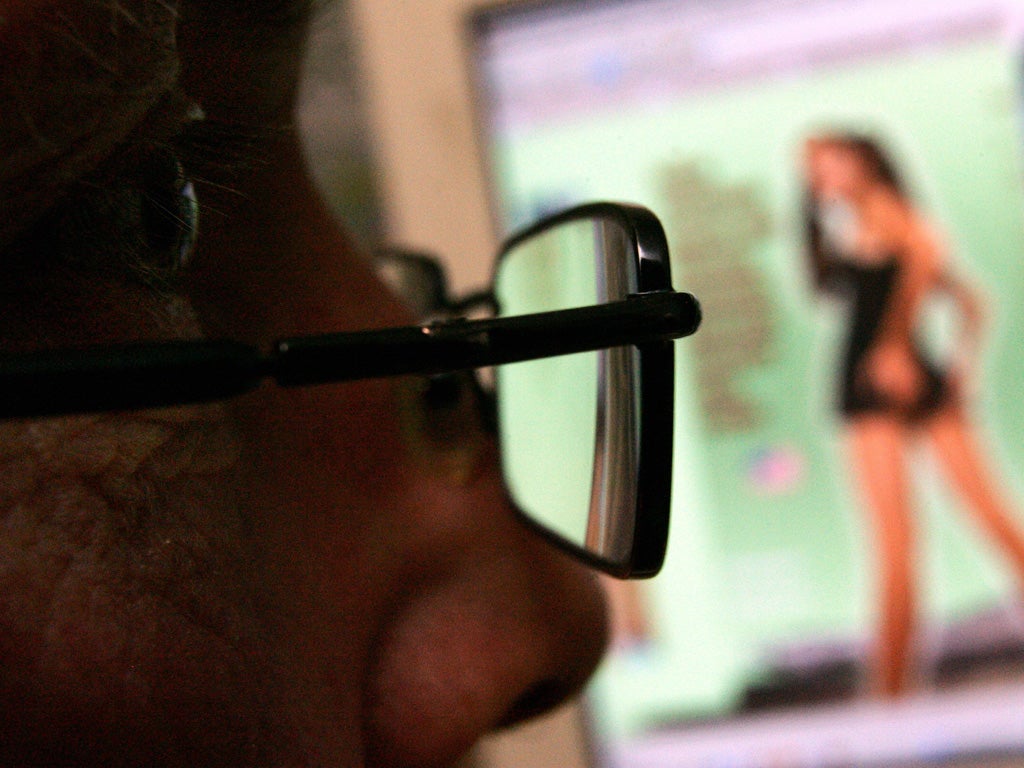Porn addiction isn't real research suggests
But the chair of a sex therapy association says the findings "belittle" sufferers

Your support helps us to tell the story
From reproductive rights to climate change to Big Tech, The Independent is on the ground when the story is developing. Whether it's investigating the financials of Elon Musk's pro-Trump PAC or producing our latest documentary, 'The A Word', which shines a light on the American women fighting for reproductive rights, we know how important it is to parse out the facts from the messaging.
At such a critical moment in US history, we need reporters on the ground. Your donation allows us to keep sending journalists to speak to both sides of the story.
The Independent is trusted by Americans across the entire political spectrum. And unlike many other quality news outlets, we choose not to lock Americans out of our reporting and analysis with paywalls. We believe quality journalism should be available to everyone, paid for by those who can afford it.
Your support makes all the difference.A serious addiction or a way of preventing sex offences? New research suggests that being addicted to porn might not be real after all.
But a leading sex therapist has stressed that the condition is real and “devastating”.
A clinical psychologist and the director of a behavioural health programme, Dr David Ley, claims that there is no strong evidence to prove that a person can be addicted to pornography.
After reviewing current studies into pornography addiction, he discovered that 37 per cent of studies describe excessive use of porn as an addiction, while 27 per cent of articles contain no data at all.
His study published in the journal 'Current Sexual Health Reports', also suggests that there are no negative side effects for a person who excessively uses porn, and that there is no link between erectile dysfunction.
Dr Ley added that experiments into the condition based on these articles are therefore carried out poorly and without scientific rigour.
When these factors are combined, he claims that the pool of evidence proving porn addiction is real is very shallow.
“We need better methods to help people who struggle with the high frequency use of visual sexual stimuli, without pathologising them or their use thereof,” wrote Dr Ley.
He also cites that due to a lack of scientific data, the condition is not listed in the latest edition of Diagnostic and Statistical Manual of Mental Disorder – the trusted manual approved by the American Psychiatric Association.
Dr Ley instead claims that porn can improve attitudes to sexuality, increase quality of life and pleasure in long-term relationships, because porn gives an outlet for illegal sexual desires and leads to a decrease in sexual offences.
However, Paula Hall, a sexual and relationship psychotherapist and sex addiction, and the chair of the Association for the Treatment of Sex Addiction and Compulsivity, disagrees with Dr Ley’s findings and told The Independent that porn addiction not only devastates the person’s life, but the lives of those around them.
“The clients are very very real, and comments like this dismiss and belittle the very real pain that people suffer.
“We are inundated with requests for help from people who want to get back on with their lives”.
Asked whether it is true that excessive porn use does not affect a person negatively, she said: “It impacts relationships, social lives, work, studies, after a while it can escalate to the person paying for sites and so there’s also a financial implication.
“When you work with these people it’s just ridiculous to say it doesn’t exist. People don’t drink because they’re thirsty it’s because they have other psychological problems," she added.
Join our commenting forum
Join thought-provoking conversations, follow other Independent readers and see their replies
Comments